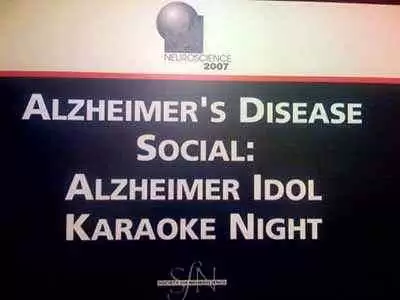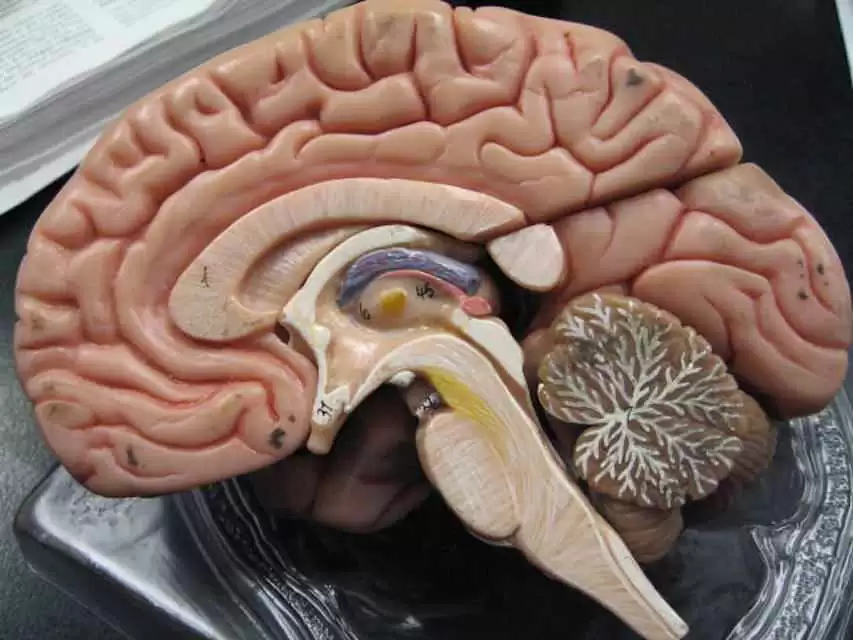
Celiac.com 03/14/2020 - Dr. Mary Newport reported that, in the U.S. alone, up to 15,000,000 people will have Alzheimer’s disease by the year 2020 (1). Dementia is a growing problem that threatens the very fabric of most advanced nations with their aging populations. Many consider dementia to be an inevitable part of aging, and hopelessly irreversible. However, gluten-induced dementia may be changing the way physicians and members of the general populace see dementia, as well as offering new hope for effective treatment of early stage dementias. In previous issues I have discussed gluten induced psychiatric and neurological conditions ranging from attention deficit disorders, to schizophrenia, to epilepsy. The connections are clear for anyone who will look at the relevant peer reviewed research reports with an open mind. Dementia is another issue.
Dementia is commonly recognized, in the peer reviewed literature, as one manifestation of untreated celiac disease. One research report indicates that the cognitive decline of two subjects was “attributed to Alzheimer’s dementia but ameliorated after the initiation of gluten-free diet” (2). Another group has identified gluten as the causative agent in some cases of moderate to severe dementia but these subjects did not experience intellectual recovery following institution of a gluten free diet (3). This group also suggested that gluten induced dementia may be driven by immunological mechanisms (3). Further, a highly regarded researcher and celiac disease sub-specialist, Dr. Joseph Murray, M.D., Ph.D., along with several other investigators, also at the Mayo Clinic, recently reported several cases of dementia in the context of celiac disease. They went on to indicate that a gluten-free diet halted the progression of dementia in some cases, while it even brought about improvements in other patients. This group concluded their report by saying that their work “has the potential of expanding the narrow spectrum of the treatable dementia” (4) So we have a mixed picture in which early detection and treatment of celiac disease may stave off cognitive decline or halt the progression of this insidious condition. However, if diagnosis of celiac disease is delayed, and dementia becomes severe, there is little hope for recovery.
Celiac.com Sponsor (A12):
Although cognitive decline among the elderly is one of the manifestations of untreated celiac disease, making gluten a direct cause or contributor to dementia in the above reports, it can also contribute to cognitive decline in other, more subtle ways. For instance, vascular dementia can be caused by reductions in the supply of nutrients to certain parts of the brain, leading to the cell death in those “starved” areas. This might occur if regions of the brain develop insulin resistance, blocking nutrients from moving into the cells. Gluten grains have a very large glycemic load, causing considerable insulin production over lengthy periods. It might also result from inadequate circulating insulin, which softens cell walls to aid in their absorption of glucose from the bloodstream. Similarly, another type of cognitive decline is called vascular dementia. The latter is characterized by multiple small strokes and is called multiple infarct dementia or MID (5) causing cells to die due to insufficient oxygen. Over time, any of these dynamics will cause brain shrinkage and compromise cognitive function.
After more than 50 years of intensive research, we still don’t know the specific cause of plaques that form on the walls of blood vessels, resulting in an array of cardio-vascular ailments and incidents, including some forms of vascular dementia. However, we do know that carbohydrates contribute to insulin spikes, and hence, fat storage. These fats can then be mobilized into the circulation, ultimately binding to vessel walls or completely blocking smaller blood vessels with fatty plaques.
Current conventional wisdom suggests that the location of these plaques is determined by lesions that occur on blood vessel walls. Some of the well documented toxic and allergenic dynamics, driven by inappropriate absorption of undigested and partly digested dietary proteins into the bloodstream, commonly occur in the context of celiac disease and gluten sensitivity. Such foreign substances circulating in the blood could well contribute to the formation of these lesions on blood vessel walls. This, in combination with the heavy glycemic load imposed by gluten consumption, could contribute to dementia both through helping to create the lesions where plaques can accumulate fats from the circulation, as well as through inciting extended periods of insulin production by the pancreas. This excessive insulin production can facilitate the development of insulin resistance. Whether the lipoproteins that aggregate at these lesions block or only impede blood flow, the death of brain cells could well be the result. Whether from oxygen starvation, nutrient starvation, or both, these data support the suggestion that such starvation may cause the regional brain cell death that typifies dementia.
While we’re on the topic of excessive insulin production contributing to fats circulating in the bloodstream, it may be instructive to point out that diabetic patients have an increased risk of developing dementia (6). Since the risk of type 2 diabetes increases with age, some researchers have asserted the value of glycemic control to stave off a range of geriatric syndromes, including dementia (7). Further, current research is suggesting that the risk of vascular dementia is elevated among those with insulin resistance, while insufficient insulin production may be related to an increased likelihood of developing Alzheimer’s (8).
Thus, whether there is insufficient insulin production to move nutrients into brain cells, insulin resistance in some of the brain cells blocking glucose from entering (perhaps due to excessive insulin production) vascular damage due to a leaky gut, or gluten-induced alterations to blood flow patterns in the brain, gluten grains are likely a large contributor to dementia in many of its forms.
It is also worth pointing out that statins, a class of drugs that lower cholesterol have, in the past, sometimes been touted, both in peer reviewed and promotional literature, as a means of reducing the incidence of various dementias by reducing serum cholesterol, and hence, reducing plaques on vessel walls that feed the brain. However, randomized controlled trials have repeatedly shown that these drugs either have no effect on the risk of dementia (9, 10) or, in rare cases they can induce memory losses or exacerbate pre-existing memory disturbances (11). All of the preceding suggests the need for particular caution when prescribing statins to elderly individuals (12). It has also been asserted that physician awareness is quite low regarding even the most common adverse reactions to these lipid lowering drugs (13).
Hunting and gathering societies do not experience such ailments. Just as schizophrenia is rare in primitive cultures (14) diabetes and strokes are also rare (15). Perhaps dementia is another set of diseases of modernity. In other words, they result from eating modern diets which are laden with sugar, allergenic grain/flour products, and a wide range of chemicals that are added to processed food to improve its shelf life, enhance its flavor, or otherwise improve its marketability.
I’m not suggesting that we can return to a hunter-gatherer lifestyle. The planet would only be able to support a tiny fraction of its current population if we undertook such a shift in our eating habits. However, our governmental position on the nature of healthful foods and agricultural production should undergo dramatic revision to bring it into line with current research which would remove two dramatic causes of illness and delayed sensitivities, dairy and gluten, from their current, highly vaunted positions on government dietary recommendations.
Further research is needed to determine if a leaky gut is a common factor in the formation of plaques on blood vessel walls. It might also be useful to determine whether the capillary leakage associated with celiac disease has implications for gluten-associated dementia. Finally, we must wonder if Zonulin (a messenger that increases the spaces between epithelial barrier cells) is playing a role in dementias, either through compromising the blood brain barrier or through compromising the integrity of blood vessel walls, or both. Zonulin production is increased in response to certain infectious agents, or gluten, when eaten by gluten sensitive individuals (16).
Clearly, we need to increase our understanding of the many facets of all forms of dementia. We need to bring a critical eye to bear on the prescription of statins for elderly patients, and we need to reduce the 13 year delays to diagnosis of celiac disease (17). If our physicians are not familiar with the range of adverse events associated with Statins or the protean manifestations of celiac disease, we must either educate them, or seek out physicians who are knowledgeable in these areas.
References:
1. Newport M, http://www.tampabay.com/news/aging/article879333.ece
2. Lurie Y, Landau DA, Pfeffer J, Oren R. Celiac disease diagnosed in the elderly. J Clin Gastroenterol. 2008 Jan;42(1):59-61.
3. Collin P, Pirttilä T, Nurmikko T, Somer H, Erilä T, Keyriläinen O. Celiac disease, brain atrophy, and dementia. Neurology. 1991 Mar;41(3):372-5.
4. Hu WT, Murray JA, Greenaway MC, Parisi JE, Josephs KA. Cognitive impairment and celiac disease.Arch Neurol. 2006 Oct;63(10):1440-6.
5. Kantarci K, Weigand SD, Przybelski SA, Shiung MM, Whitwell JL, Negash S, Knopman DS, Boeve BF, O’Brien PC, Petersen RC, Jack CR Jr.Risk of dementia in MCI: combined effect of cerebrovascular disease, volumetric MRI, and 1H MRS. Neurology. 2009 Apr 28;72(17):1519-25.
6. Bruehl H, Wolf OT, Sweat V, Tirsi A, Richardson S, Convit A. Modifiers of cognitive function and brain structure in middle-aged and elderly individuals with type 2 diabetes mellitus. Brain Res. 2009 May 19.
7. Vischer UM, Bauduceau B, Bourdel-Marchasson I, Blickle JF, Constans T, Fagot-Campagna A, Kaloustian E, Lassman-Vague V, Lecomte P, Simon D, Tessier D, Verny C, Doucet J A call to incorporate the prevention and treatment of geriatric disorders in the management of diabetes in the elderly. Diabetes Metab. 2009 May 13.
8. Rönnemaa E, Zethelius B, Sundelöf J, Sundström J, Degerman-Gunnarsson M, Lannfelt L, Berne C, Kilander L. Glucose metabolism and the risk of Alzheimer’s disease and dementia: a population-based 12 year follow-up study in 71-year-old men. Diabetologia. 2009 May 20.
9. McGuinness B, Craig D, Bullock R, Passmore P. Statins for the prevention of dementia. Cochrane Database Syst Rev. 2001;(4)
10. Carlsson CM, Nondahl DM, Klein BE, McBride PE, Sager MA, Schubert CR, Klein R, Cruickshanks KJ.Increased atherogenic lipoproteins are associated with cognitive impairment: effects of statins and subclinical atherosclerosis. Alzheimer Dis Assoc Disord. 2009 Jan-Mar;23(1):11-7.
11. Golomb BA, Implications of statin adverse effects in the elderly. Expert Opinion on Drug Safety May 2005, Vol. 4, No. 3, Pages 389-397.
12. Padala KP, Padala PR, Potter JF. Simvastatin-induced decline in cognition. Ann Pharmacother. 2006 Oct;40(10):1880-3. Epub 2006 Aug 29.
13. Golomb BA, Evans MA. Statin adverse effects : a review of the literature and evidence for a mitochondrial mechanism. Am J Cardiovasc Drugs. 2008;8(6):373-418.
14. Dohan FC, Harper EH, Clark MH, Rodrigue RB, Zigas V. Is schizophrenia rare if grain is rare? Biol Psychiatry. 1984 Mar;19(3):385-99.
15. Collins C. Said another way: stroke, evolution, and the rainforests: an ancient approach to modern health care.Nurs Forum. 2007 Jan-Mar;42(1):39-44.
16. Fasano A, Physiological, Pathological, and Therapeutic Implications of Zonulin-Mediated Intestinal Barrier Modulation. American Journal of Pathology. 2008;173:1243-1252.
17. Kostopoulou O, Devereaux-Walsh C, Delaney BC. Missing Celiac Disease in Family Medicine: The Importance of Hypothesis Generation. Med Decis Making. 2009 Apr 10.









Recommended Comments
There are no comments to display.
Create an account or sign in to comment
You need to be a member in order to leave a comment
Create an account
Sign up for a new account in our community. It's easy!
Register a new accountSign in
Already have an account? Sign in here.
Sign In Now